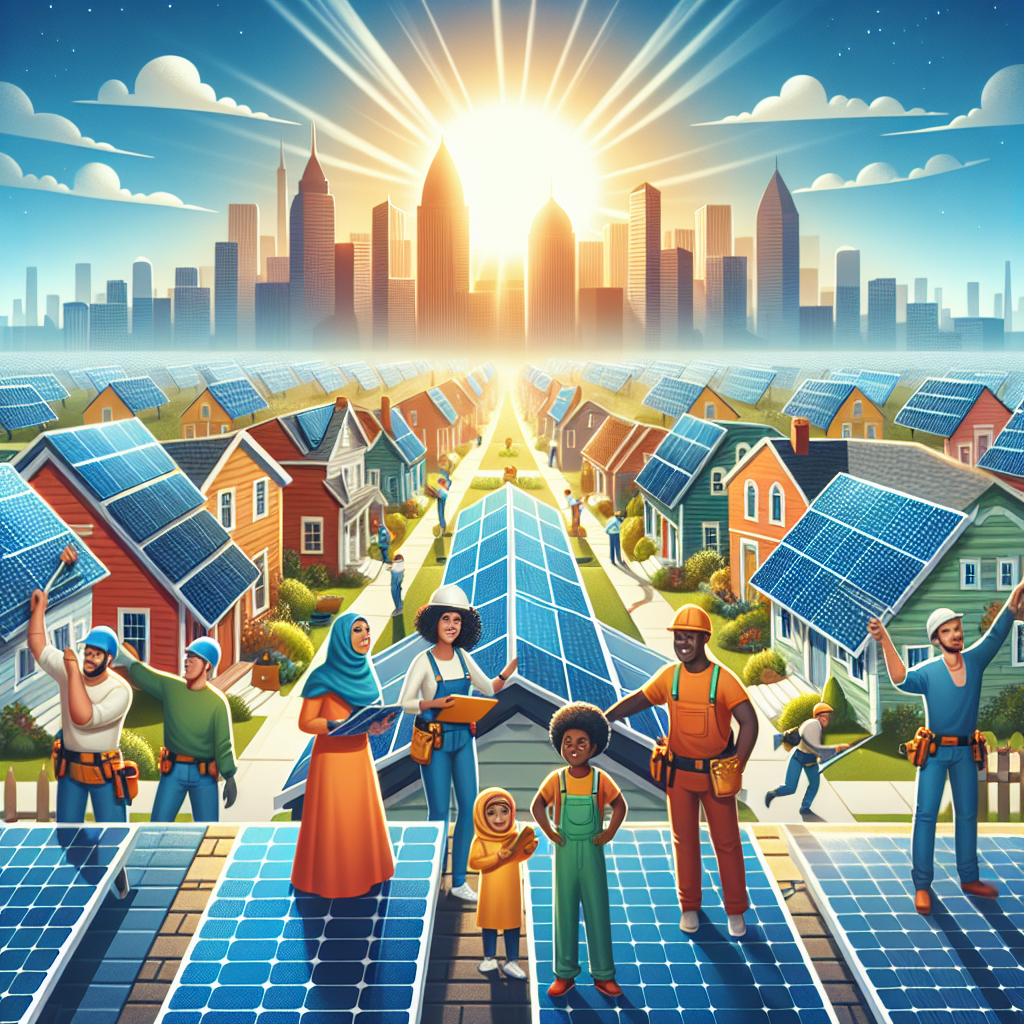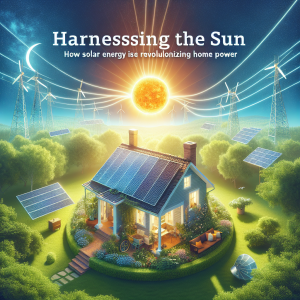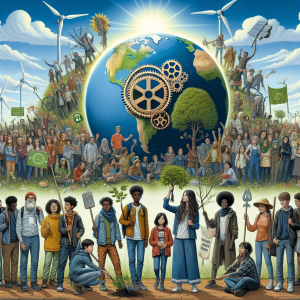Off the Grid: A Guide to Renewable Energy Sources
Understanding renewable energy is essential for anyone considering living off the grid. Solar, wind, hydro, and biomass are the primary renewable energy sources, each with unique benefits, challenges, and applications. This guide explores these options, helping you identify the best solutions for sustainable, independent living.
Solar energy is the most accessible and widely used renewable source. Harnessing the sun’s power involves photovoltaic (PV) solar panels, which convert sunlight into electricity. Solar panels are versatile and can be installed on rooftops, open lands, or portable mounts. Key advantages include low maintenance, decreasing installation costs, and significant tax incentives. However, solar energy relies heavily on weather conditions and geographic location, requiring adequate sunlight exposure for efficiency.
When considering a solar system, calculating energy needs is crucial. Assess your daily consumption, taking into account appliances, lighting, heating, and cooling requirements. This assessment determines the number of solar panels needed and helps estimate battery storage capacity, ensuring energy availability during cloudy days or at night. Energy-efficient appliances and LED lighting can further enhance solar power’s viability, reducing overall energy demand.
Wind energy is another viable renewable resource, ideal for locations with consistent wind patterns. Wind turbines capture kinetic energy from the wind, converting it into electricity. They come in various sizes, suitable for small communities or individual homes. Wind turbines are most effective in open areas with average wind speeds of at least 9 mph (14 kph). Unlike solar panels, wind turbines can operate day and night, generating power without sunlight dependency.
Installing a wind energy system requires careful site assessment. Evaluating wind speeds, potential obstructions, and noise regulations is essential. A small-scale wind turbine should be at least 30 feet (9 meters) above the highest obstacle within 300 feet (91 meters) to ensure optimal performance. Additionally, combining wind and solar systems can create a hybrid solution, balancing each source’s limitations and enhancing off-grid reliability.
Hydropower harnesses flowing water to generate electricity. It’s a dependable and continuous energy source, ideal for properties near rivers or streams. Micro-hydro systems can produce power 24/7, operating efficiently even with a small flow rate. Unlike solar and wind systems, hydropower doesn’t rely on weather conditions, providing a steady energy supply.
Before installing a micro-hydro system, assess water flow, head height, and environmental impact. Seasonal changes and water rights must also be considered, as they affect system design and operation. Although initial setup can be costly and time-consuming, hydropower offers longevity and consistent output, making it a valuable investment for suitable locations.
Biomass energy involves using organic materials to generate heat or electricity. This method is particularly beneficial for areas with abundant agricultural waste or wood resources. Wood stoves, pellet stoves, and biogas digesters are common biomass technologies. They convert waste materials into usable energy, reducing reliance on fossil fuels.
Implementing biomass energy requires careful consideration of resource availability and sustainability. It’s crucial to ensure a consistent supply of raw materials to avoid depletion. Additionally, selecting clean combustion technologies minimizes air pollution and maximizes efficiency. By integrating biomass with other renewables, users can create a diverse and resilient energy portfolio.
Energy storage is a crucial component of any off-grid renewable energy system. Batteries store excess energy generated during peak production, ensuring power availability during low-generation periods. Lithium-ion batteries are popular due to their high efficiency, longevity, and decreasing costs. However, lead-acid batteries remain a cost-effective alternative, albeit with a shorter lifespan and reduced efficiency.
Choosing the right battery involves evaluating capacity, discharge rates, and cycle life. Proper battery management includes routine maintenance, temperature control, and regular performance checks. Using an inverter, convert stored energy from direct current (DC) to alternating current (AC), compatible with standard household appliances.
Managing energy consumption is vital for off-grid lifestyles. Implementing energy-efficient practices reduces demand and complements renewable systems. Insulating homes, using programmable thermostats, and adopting energy-efficient appliances significantly boost system efficiency. Smart home technologies can further optimize energy use, monitoring consumption and adjusting settings for maximum efficiency.
Incorporating a backup generator ensures a reliable energy supply during emergencies or system failures. While not a renewable source, a generator provides peace of mind and supports critical loads when renewables fall short. Opt for generators compatible with renewable fuels, like biodiesel, to reduce environmental impact.
Beyond electricity production, consider water and waste management for fully sustainable off-grid living. Rainwater harvesting systems and composting toilets minimize environmental footprints and promote resource conservation. Sustainable building materials and passive solar design enhance energy efficiency, creating a holistic approach to sustainable independence.
Deciding to live off the grid is a commitment to sustainability and independence. Each renewable energy source offers unique advantages and challenges, requiring careful assessment and planning. By integrating technologies and optimizing energy use, individuals can create resilient, efficient systems tailored to their unique needs and environments.




